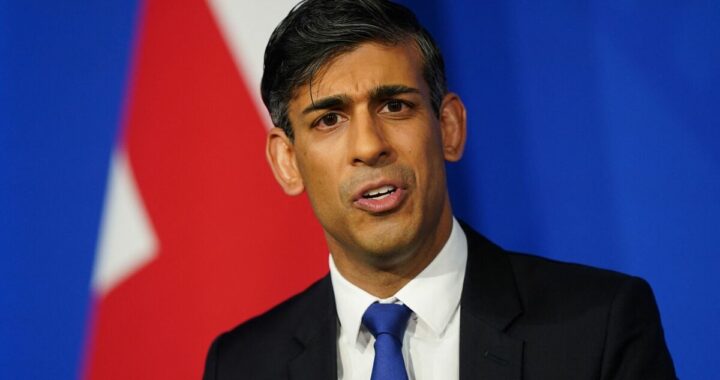The White House Renews Its Attack on ‘Surprise Fees’
9 min read

A move to ‘end surprise fees’
With inflation still a potent political issue, President Biden is stepping up his war on so-called junk fees.
At the White House on Thursday, he will host a panel of executives from several companies, including Airbnb and Live Nation, which drew outrage from consumers over its botched ticket sales for Taylor Swift’s tour last year.
The companies are expected to announce new efforts to “end surprise fees,” the White House said, including through price-transparency commitments and other ways of fully disclosing upfront costs to consumers. The administration hopes that the changes will be adopted by companies across a wide array of industries, including live events and travel.
Mr. Biden has made a junk-fee ban a priority. In his State of the Union address in February, he denounced the added costs: “I know how unfair it feels when a company overcharges you and gets away with it.”
He has asked several federal regulators, including the Consumer Financial Protection Bureau and the Transportation Department, to increase oversight of the opaque fees charged by banks and airlines. Meanwhile, the Federal Trade Commission has called for more widespread use of “click to cancel” options to make it easier for consumers to end subscriptions.
It’s a popular issue. Most Americans support limits on bank fees, while economists are increasingly accepting the idea of “greedflation,” where price gouging by companies pushes up inflation.
Still, fees have powerful defenders. Republicans on the House Financial Services Committee criticized the C.F.P.B.’s chief, Rohit Chopra, on Wednesday over the regulator’s clampdown on bank and credit card fees. “To indiscriminately label fees as abusive is a blatant attempt to pander to Americans,” said Andy Barr of Kentucky.
Businesses would prefer a government mandate that limits or even eliminates such fees, one lobbyist told DealBook, as the greater transparency would lead to a healthier consumer marketplace.
“Fans want to understand the full cost of their purchase, with no deception or surprises,” Jack Groetzinger, SeatGeek’s C.E.O., told DealBook. But he added that “there is still more to be done.”
Some progressives say focusing on junk fees misses the larger picture. While they oppose hidden fees, these advocates say that the glitches and pricing issues behind the Taylor Swift tour debacle persist because of Live Nation’s dominance of live events.
The Justice Department is continuing to investigate Live Nation’s market position. And the American Economic Liberties Project gave DealBook a first look at new data that it says show the firm holding a lock on the 100 top event venues in the U.S. and 100 arenas worldwide. The group said it hoped the data would “accelerate efforts to break up this monopoly.” Live Nation did not respond to a request for comment.
HERE’S WHAT’S HAPPENING
Prosecutors drop some charges against Sam Bankman-Fried. In a court filing, government lawyers said they were withdrawing five legal claims they made against the FTX founder after he was extradited from the Bahamas in December. Though the move was considered a win for Mr. Bankman-Fried, prosecutors have asked the presiding judge to schedule a second trial for those charges.
Music publishers sue Twitter for copyright infringement. A group of 17 publishers accused the company of violating copyright law by allowing users to post music to its platform without permission. Talks between the two sides broke down months ago; now the publishers are seeking as much as $250 million.
Mayor Francis Suarez of Miami files to run for president. The Florida Republican, who rose to prominence by courting the tech and crypto communities, becomes the latest to take on Donald Trump for the G.O.P. nomination. Mr. Suarez faces an uphill battle, given Trump’s dominant polling numbers and emerging allegations about his ties to a developer.
Cava’s I.P.O. comes in above expectations. The fast-casual restaurant chain raised $318 million, valuing it at $2.45 billion. The offering, the sixth-largest in the United States this year, had been closely watched by Wall Street as a sign of a potential thaw in the largely frozen market for I.P.O.s.
The Fed’s hawkish pause
The S&P 500’s five-day winning streak is in jeopardy on Thursday.
Stock futures are edging lower and bond yields are climbing as investors come to grips with the realization that the Fed has more to do to bring inflation under control.
The central bank finally stood pat on rates on Wednesday, after raising rates in 10 consecutive meetings. But that breather came with a message more hawkish than many market participants had expected: Fed officials anticipate two more increases this year.
The culprit is persistent inflation. Over the past 15 months, the Fed has raised rates at the fastest pace in decades. But core inflation remains well above the central bank’s 2 percent target, and, according to the Fed’s latest forecast, prices will stay elevated for the rest of the year.
“The process of getting inflation down is going to be a gradual one. It’s going to take some time,” Jay Powell, the Fed chair, said on Wednesday. He added that the Fed would be “stretching out” increases, signaling that it is hardly done tightening, but that it has entered a more gradual phase.
Futures markets indicate that investors believe the next increase will come at the Fed’s July meeting. And the first cut to rates isn’t expected until the first half of next year.
The good news: Fed officials now expect economic growth of about 0.2 percent per quarter this year. That may not seem like a victory-lap number, but it is “a far cry from the near-recessionary forecasts the F.O.M.C. published in March,” the Berenberg economists Mickey Levy and Mahmoud Abu Ghzalah wrote in an investor note on Wednesday, referring to the Fed’s rate-setting committee.
Europe is up next. The European Central Bank is widely forecast to raise rates by 0.25 percentage points on Thursday as the eurozone grapples with inflation that’s well above U.S. levels. The E.C.B. is also expected to hint that it may raise rates at least once more after Thursday’s decision.
Meanwhile, China is bucking the trend. On Thursday morning, the People’s Bank of China unveiled its second cut to interest rates this week, lowering the borrowing rate on a type of one-year loan that banks commonly issue. The move followed a new batch of Chinese data that showed economic activity slowing further.
WilmerHale taps a new managing partner
Anjan Sahni, a lawyer at WilmerHale who once prosecuted Wall Street figures, will become the firm’s next managing partner in January, writes The Times’s Benjamin Weiser.
Mr. Sahni, 46, rejoined Wilmer as a partner in 2015 after serving for a decade in the office of the U.S. attorney for the Southern District of New York, where he led the securities and commodities fraud task force and earlier co-headed the terrorism and international narcotics unit.
Mr. Sahni helped prosecute Viktor Bout, a former Soviet military officer convicted in 2011 on charges including conspiracy to kill Americans. (Mr. Bout was exchanged in December for Brittney Griner, the American basketball star who was detained by Russia for nearly 10 months.) He also oversaw investigations into accomplices of Bernie Madoff, the disgraced Ponzi investor.
In his private practice he added Caroline Ellison, the former crypto executive and colleague of FTX’s Sam Bankman-Fried, as a client last year. She has pleaded guilty and is assisting the federal investigation of Mr. Bankman-Fried.
Wilmer is known as a lucrative passageway in and out of government. Robert Mueller returned there after his stint as special counsel investigating Russia’s interference in the 2016 election (he has since retired). Its partners include Jamie Gorelick, a deputy attorney general in the Clinton administration, and Preet Bharara, the Southern District U.S. attorney under President Barack Obama. Former partners include Alejandro Mayorkas, the Biden administration’s homeland security secretary, and Brendan McGuire, chief counsel to Mayor Eric Adams of New York City.
Mr. Sahni immigrated from India with his family when he was 8 and is a graduate of Emory University and Yale Law School. He becomes Wilmer’s first sole leader; the firm has had co-managing partners since the merger that created WilmerHale in 2004.
The firm doesn’t disclose compensation figures, but partners there were paid $2.8 million on average in 2022, according to The American Lawyer.
Mr. Sahni told DealBook the move was “deeply meaningful, and I’m excited to do it.”
A storied U.K. hedge fund is poised to close
Odey Asset Management, the prominent British hedge fund, said on Thursday that it was on the brink of closure, after its founder, Crispin Odey, was accused of multiple instances of sexual assault and harassment.
Odey said it was in advanced talks to transfer funds and staff to other firms. (Such moves are subject to due diligence and regulatory approvals.) The hedge fund said regulators were aware of and supported the effort.
The demise of the firm followed an investigation by The Financial Times, which spoke to at least 13 women who accused Crispin Odey of sexual misconduct over 25 years and said the firm had not done enough to curb his behavior.
It marked the latest series of allegations against Crispin Odey, who had become one of London’s most famous hedge fund managers and a prominent backer of both the ruling Conservative Party and of Brexit. (He was acquitted of some assault charges in 2021.)
The firm itself has had a volatile tenure, in part because of its willingness to take big bets. After managing as much as $13.3 billion over the years, it reported $4.9 billion in assets earlier this year.
Odey’s existence became increasingly tenuous in recent days, as trading partners cut ties to the hedge fund, despite efforts by the firm’s other partners to push Crispin Odey out. Ultimately, the firm concluded with extreme understatement, it was clear “that some investment management activities of the partnership are affected by recent events.”
THE SPEED READ
Deals
Vodafone and Hutchison agreed to combine their British wireless service units in a $19 billion deal, but face potentially tough scrutiny from antitrust regulators. (Reuters)
WE Soda, a major producer of construction materials, withdrew its $9.5 billion I.P.O., a blow to the London Stock Exchange. (FT)
“Why Inter Miami’s Lionel Messi deal isn’t done yet” (The Athletic)
Here’s an in-depth effort to follow the money in the sale of the master rights to Taylor Swift’s first six albums. (Music Business Worldwide)
Policy
“Hoping to Avert Nuclear Crisis, U.S. Seeks Informal Agreement With Iran.” (NYT)
President Emmanuel Macron of France plans to form a $543 million fund to create national “champions” in artificial intelligence. (France24)
Union dockworkers and port workers on the West Coast have reached a tentative deal on a new contract. (NYT)
Best of the rest
Some economists are blaming a surprise uptick in Sweden’s inflation on Beyoncé, but can the same be said of Taylor Swift? (FT, Twitter)
“Cash-strapped Taliban selling tickets to ruins of Buddhas it blew up” (WaPo)
A 14-year-old was able to join SpaceX as a software engineer, but he’s too young to have a LinkedIn account. (Insider)
One of Saturn’s 146 moons has a sea with all the elements needed to support extraterrestrial life. (NYT)
We’d like your feedback! Please email thoughts and suggestions to [email protected].
Andrew Ross Sorkin is a columnist and the founder and editor at large of DealBook. He is a co-anchor of CNBC’s “Squawk Box” and the author of “Too Big to Fail.” He is also a co-creator of the Showtime drama series “Billions.” @andrewrsorkin • Facebook
Ravi Mattu is the managing editor of DealBook, based in London. He joined The New York Times in 2022 from the Financial Times, where he held a number of senior roles in Hong Kong and London. @ravmattu
Bernhard Warner joined the The Times in 2022 as a senior editor for DealBook. Previously he was a senior writer and editor at Fortune focusing on business, the economy and the markets. @bernhardwarner
Sarah Kessler is a senior staff editor for DealBook and the author of “Gigged,” a book about workers in the gig economy. @sarahfkessler
Michael de la Merced joined The Times as a reporter in 2006, covering Wall Street and finance. Among his main coverage areas are mergers and acquisitions, bankruptcies and the private equity industry. @m_delamerced • Facebook
Lauren Hirsch joined The Times from CNBC in 2020, covering deals and the biggest stories on Wall Street. @laurenshirsch
Ephrat Livni reports from Washington on the intersection of business and policy for DealBook. Previously, she was a senior reporter at Quartz, covering law and politics, and has practiced law in the public and private sectors. @el72champs
Source: Read Full Article






